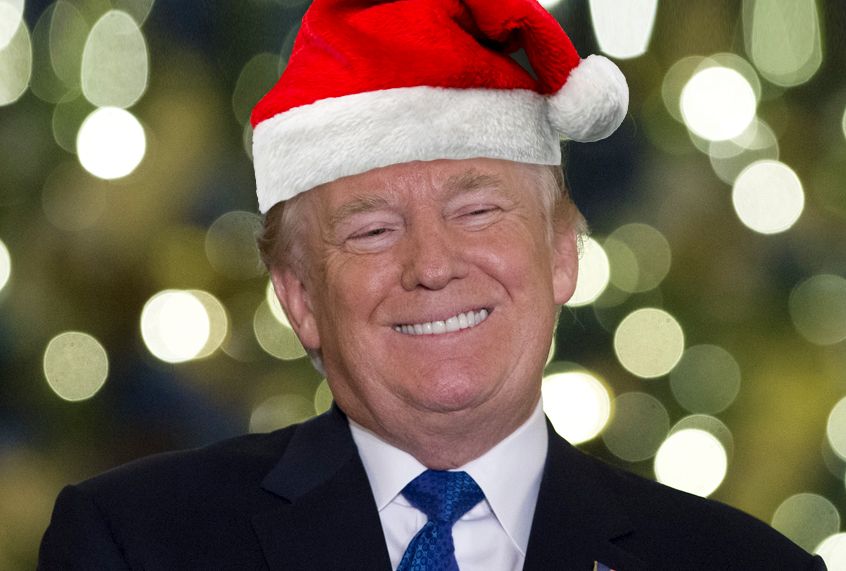Donald Trump had two promises he wanted to keep this holiday season—one, passing the GOP tax bill, and two, ending the so-called “War on Christmas.” Albeit the latter is a sentiment he proclaimed during his 2016 campaign, he brought it back into the spotlight to kick off the holiday season in November.
“I told you that we would be saying ‘Merry Christmas’ again,” Trump said to a crowd of supporters at the St. Charles Convention Center where he gave a speech on taxes.
Since then, Trump has continued to say the greeting, essentially using it as an insult to political correctness (even though technically “Merry Christmas” never left the White House). Despite Trump’s best attempt to pick a petty fight, a recent Pew Research study on the religious aspects of Christmas shows that an increasing number of Americans don’t mind being greeted with a non-denominational holiday greeting like “happy holidays.”
“A growing share of Americans say it does not matter to them how they are greeted in stores and businesses during the holiday season – whether with ‘merry Christmas’ or a less-religious greeting like ‘happy holidays,’” the report explains.
According to the report, 52 percent said that a business’ choice of holiday greeting doesn’t matter to them; however, 32 percent said they do still prefer to be greeted with “Merry Christmas.” Nearly a decade ago though, and in 2012, the split was “roughly equal.”
Overall, Pew Research suggests this progression is part of a larger trend, one in which multiple religious aspects of Christmas are overall on a decline in America. This could be the repercussion of a larger national trend, explained in a separate Pew Research study, which claims that more Americans are “spiritual but not religious.”
This reported decline isn’t a huge concern to some though.
“When asked directly, most respondents in the new poll say they think religious aspects of Christmas are emphasized less in American society today than in the past. But relatively few Americans both perceive this trend and are bothered by it,” the report says.
What’s even more interesting, and perhaps less surprising, is that the split in greeting preferences is indeed a partisan issue. The study found “clear divisions along party lines in questions about the way Christmas is observed in American culture.”
Nearly half of those who said they preferred to hear “merry Christmas” identified with or leaned toward the Republican Party, compared to the 19 percent of Democrats. Conversely, 61 percent of Democrats, or those who associated with blue-party lines, said it didn’t matter to them how they were greeted. Only 38 percent of Republicans agreed.
The inclusive holiday greeting debate has historically been a point of focus for many U.S. presidents, which perhaps most ironically, started with Republican president Dwight Eisenhower who first wrote “Season’s Greetings” on his card.

